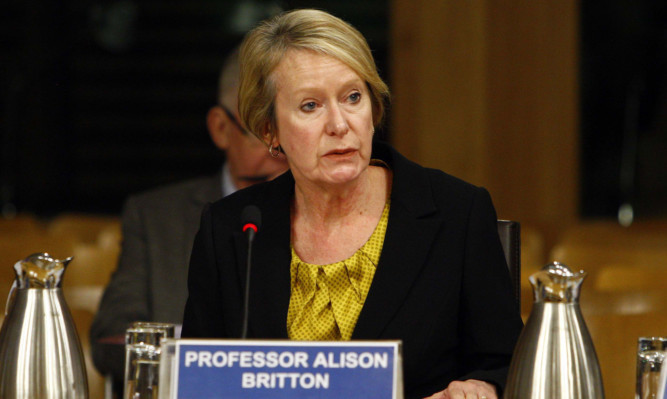Faith leaders and lawyers have attacked proposed legislation to allow assisted suicide in Scotland ahead of a Holyrood debate on the issue.
The Law Society of Scotland, Church of Scotland, Council of Imams Scotland and the Christian charity Care for Scotland have voiced concerns about the Assisted Suicide (Scotland) Bill.
Supporters of the Bill, including representatives of the My Life, My Death, My Choice campaign, will gather outside the Scottish Parliament tomorrow to urge MSPs to back the general principles of the legislation.
The Bill would allow those with terminal or life-shortening illnesses to end their suffering with the assistance of another person, known as a “licensed facilitator”.
It is being championed by Green MSP Patrick Harvie following the death of independent MSP Margo MacDonald in April 2014.
Alison Britton, convener of the Law Society’s health and medical law committee, said the organisation was concerned that the Bill lacked clarity and would be difficult to enforce.
She said: “We have said throughout the passage of this Bill that legislation in this area needs to be absolutely clear and those seeking to end their lives, and those who assist them, need a robust and transparent process to be certain under which conditions it would be lawful for assistance to be provided.
“We remain concerned over the lack of definition of the key terms, such as ‘assistance’ and ‘life-shortening’ and the functions of the licensed facilitator are still uncertain.
“Lack of such clarity leads to ambiguity and leaves the legislation open to interpretation.”
In a letter, the Church of Scotland urged MSPs to do more to improve end-of-life care instead of backing the Bill.
Reverend Sally Foster-Fulton, convener of the Kirk’s Church and Society Council, wrote: “We believe that rather than seeking to legislate for assisted dying, the Parliament must instead increase its efforts to ensure that there is high-quality palliative care available to people in every part of Scotland.
“We believe that this Bill represents much more than simply a tinkering with the law, breaching as it does the societal prohibition on the taking of human life.
“It carries implications for the whole of society, not just for those who will seek assisted death, and for attitudes to many aspects of health and social care.”
The Council of Imams Scotland has also written to MSPs urging them to vote against the legislation.
The letter said: “Life is a divine gift and trust that cannot be terminated by any form of active or passive voluntary intervention by the patient, physician or family members.
“All Muslim scholars unanimously agree that this action is strongly prohibited under the Islamic law.
“Any person assisting in this matter is also carrying out a prohibited act.”
Stuart Weir, Care for Scotland’s national director, added: “I hope MSPs kick this Bill into the long grass, we’ve got an ageing population here in Scotland and legalising assisted suicide will put vulnerable people at risk.
“The legislation is simply not up to scratch and based on our estimates from the figures from Switzerland, once you open the door to assisted suicide the evidence suggests the numbers just go up.
“We need to ask ourselves whether as a society legalising assisted suicide is the route we really want to go down.”
Holyrood’s Health Committee, which scrutinised the Bill, concluded that it was flawed but made no formal recommendation to Parliament as members said it was a matter of conscience.
Mr Harvie said: “There are strongly-held convictions on both sides of this debate and I am sure that Wednesday’s debate will be conducted with respect.
“Public opinion is clearly of the view that people should have the right to make their own choice if they find themselves faced with an illness or condition which leaves them with a quality of life they find unacceptable and from which they have no prospect of improvement.
“I have responded in detail to the committee’s concerns and reiterated my willingness to consider constructive amendments to improve the Bill.
“I would appeal to MSPs who support the basic argument, and to those who agree that a need exists to address the lack of clarity in the current law, to support the Bill at Stage 1 and allow the debate to continue.”
